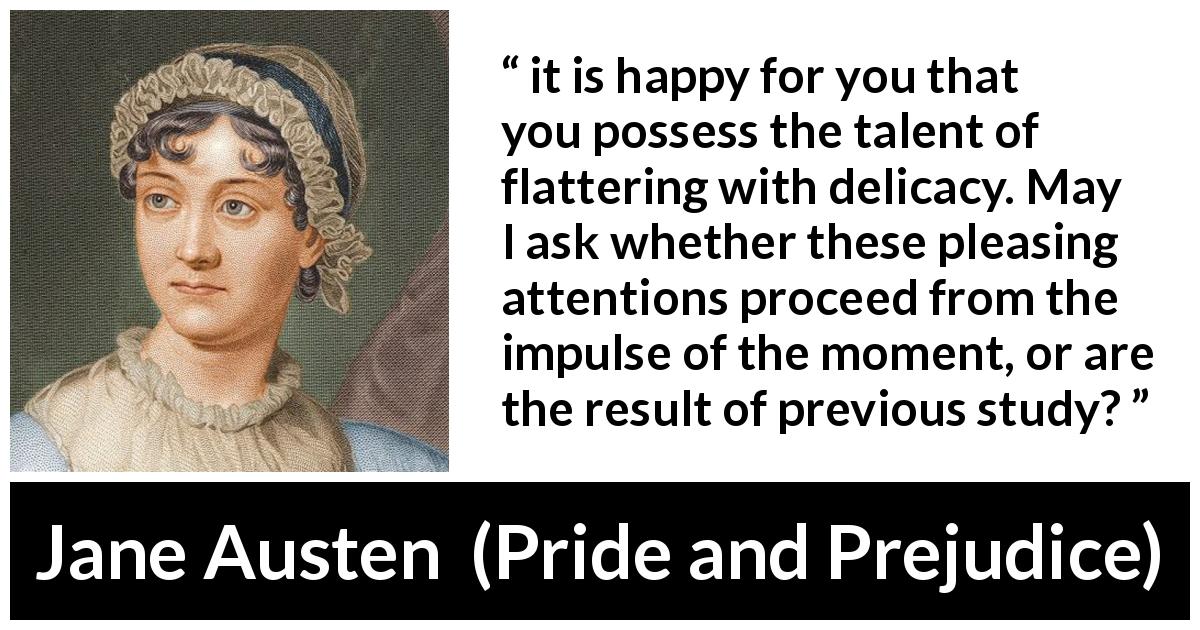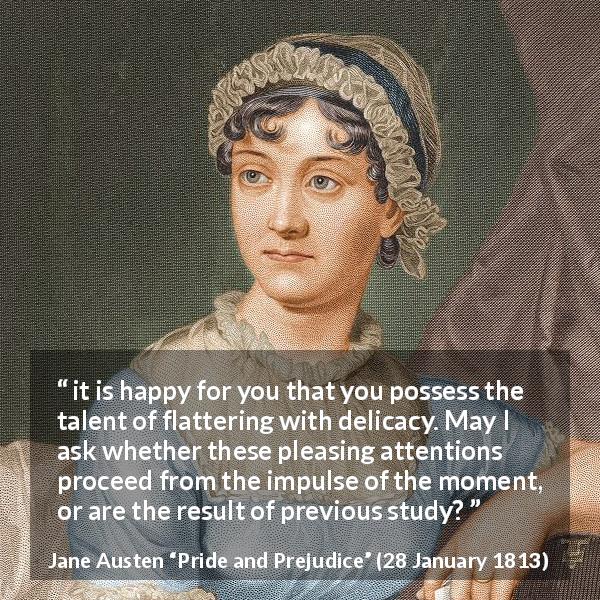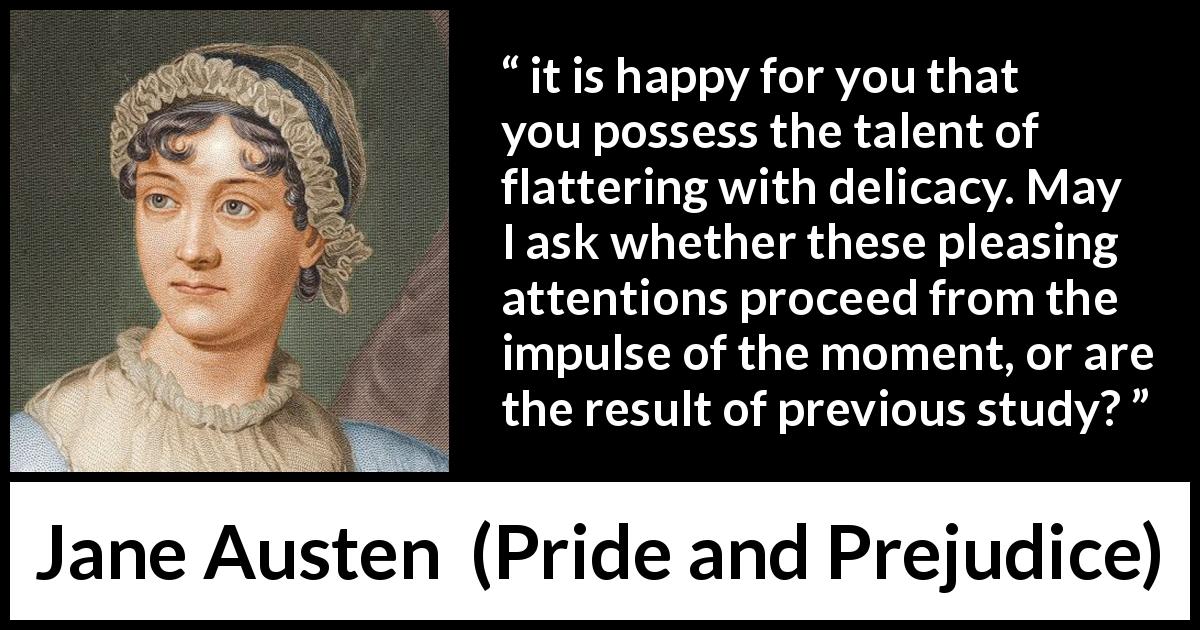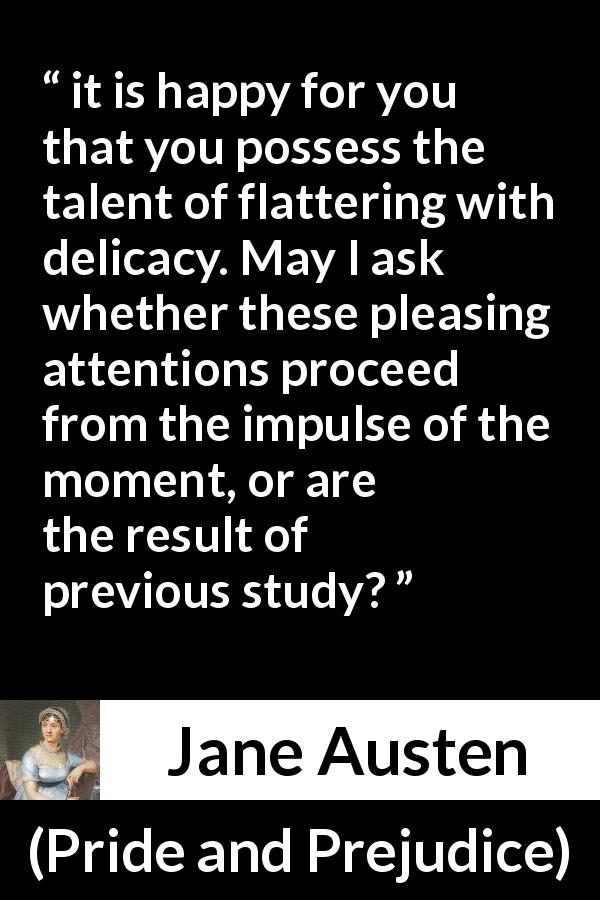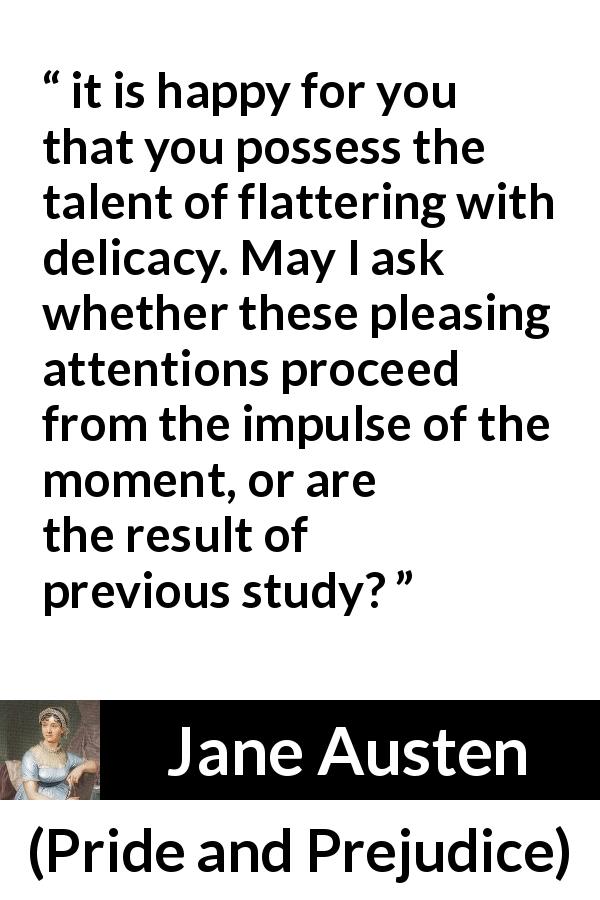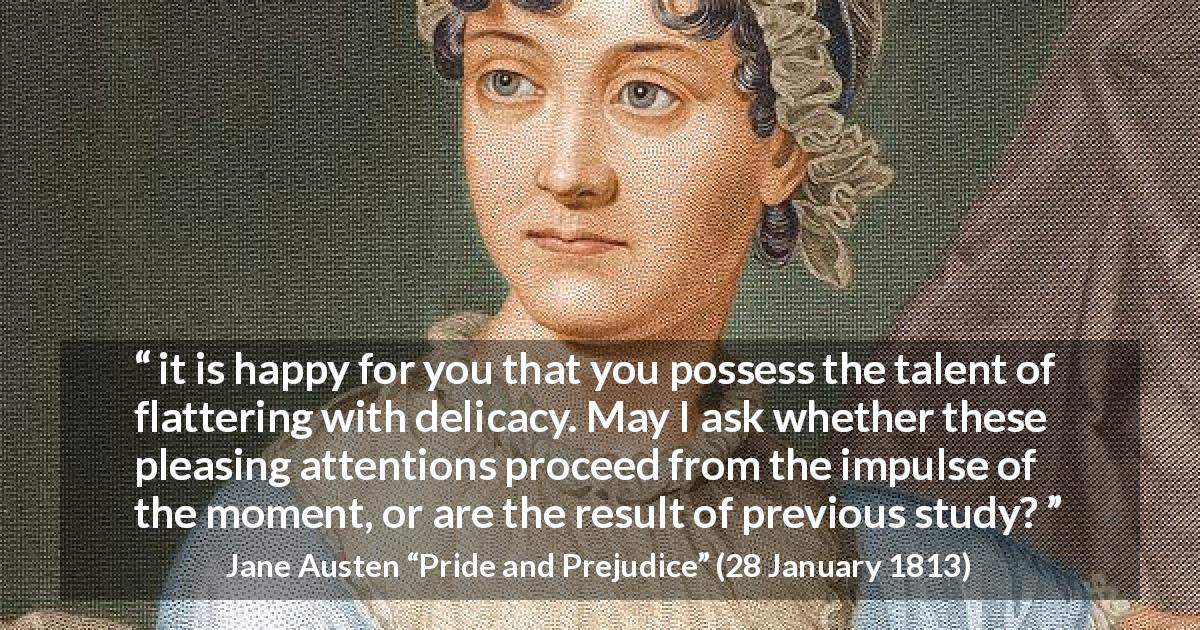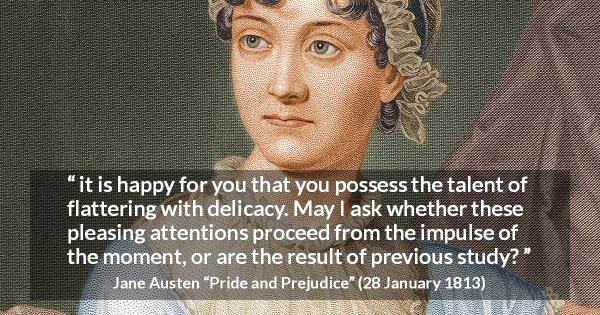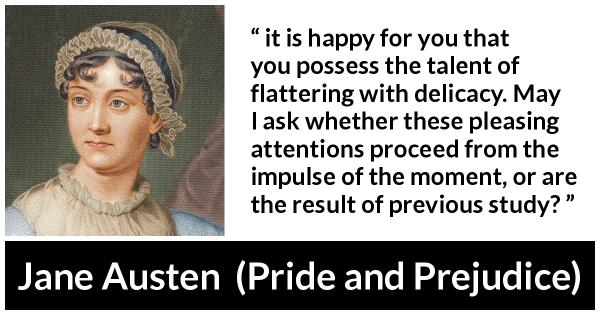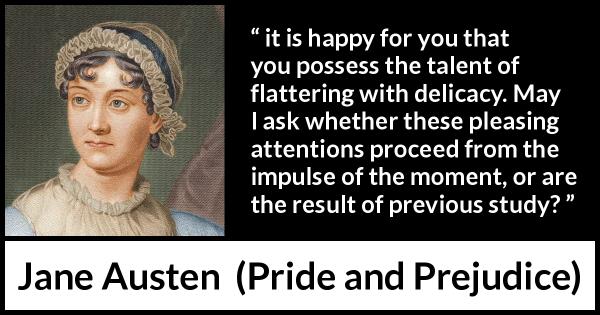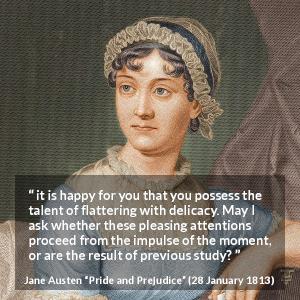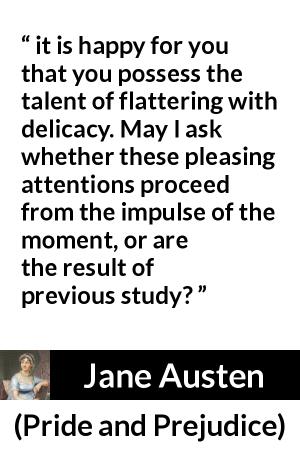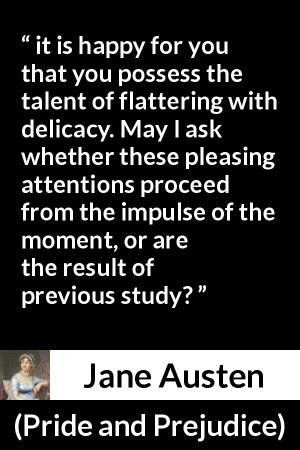“ it is happy for you that you possess the talent of flattering with delicacy. May I ask whether these pleasing attentions proceed from the impulse of the moment, or are the result of previous study? ”
Jane Austen, Pride and Prejudice (28 January 1813). copy citation
| Author | Jane Austen |
|---|---|
| Source | Pride and Prejudice |
| Topic | attention pleasing flattering |
| Date | 28 January 1813 |
| Language | English |
| Reference | |
| Note | |
| Weblink | http://www.gutenberg.org/files/1342/1342-h/1342-h.htm |
Context
“I have more than once observed to Lady Catherine, that her charming daughter seemed born to be a duchess, and that the most elevated rank, instead of giving her consequence, would be adorned by her. These are the kind of little things which please her ladyship, and it is a sort of attention which I conceive myself peculiarly bound to pay."
"You judge very properly," said Mr. Bennet, "and it is happy for you that you possess the talent of flattering with delicacy. May I ask whether these pleasing attentions proceed from the impulse of the moment, or are the result of previous study?"
"They arise chiefly from what is passing at the time, and though I sometimes amuse myself with suggesting and arranging such little elegant compliments as may be adapted to ordinary occasions, I always wish to give them as unstudied an air as possible."” source
"You judge very properly," said Mr. Bennet, "and it is happy for you that you possess the talent of flattering with delicacy. May I ask whether these pleasing attentions proceed from the impulse of the moment, or are the result of previous study?"
"They arise chiefly from what is passing at the time, and though I sometimes amuse myself with suggesting and arranging such little elegant compliments as may be adapted to ordinary occasions, I always wish to give them as unstudied an air as possible."” source
